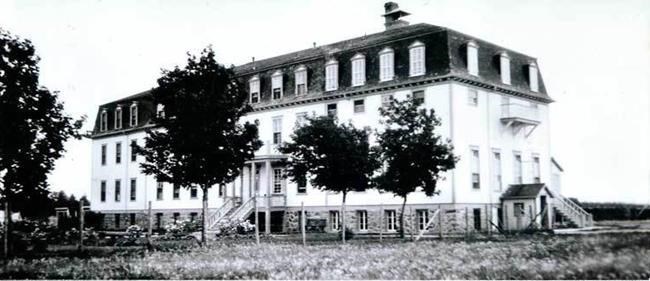WINNIPEG — A First Nations advocacy group in Manitoba is urging RCMP across the country to open criminal investigations into all former residential schools following a decade-long investigation into allegations of sexual abuse at a former residential school in the province.
The Southern Chiefs' Organization says investigations are warranted and critical in helping First Nations people heal.
"By exposing all of the horrors inflicted upon our people and seeking justice, we can then chart a clear path to reconciling with everyone who now shares this land," Grand Chief Jerry Daniels said in a statement Wednesday.
Manitoba RCMP said earlier this week they have been investigating allegations of sexual abuse at the Fort Alexander Residential School, northeast of Winnipeg, since 2010.
A criminal investigation was launched the following year.
The school was opened in 1905 in the community of Fort Alexander, which later became Sagkeeng First Nation. It ran for 66 years until 1970.
Mounties said they interviewed more than 700 people across North America and collected 75 statements from witnesses and alleged victims.
They said it is the only investigation into residential schools in the province.
Peguis First Nation Chief Glenn Hudson offered his support to the community of Sagkeeng and called for RCMP to expedite and prioritize the investigation process.
Hudson echoed calls for Mounties to open criminal investigations into all residential schools, as abuses weren't limited to one school.
"All criminals guilty of the worst offences imaginable against children must be thoroughly investigated and brought to justice," he said in a statement.
An estimated 150,000 First Nations, Inuit and Métis children were forced to attend residential schools.
Survivors told the Truth and Reconciliation Commission stories of abuse they endured while staying at the schools, including instances of starvation and harsh discipline.
The commission's final report said Phil Fontaine, former grand chief of the Assembly of Manitoba Chiefs and a past national chief of the Assembly of First Nations, put experiences at residential schools on the national agenda in 1990 when he disclosed his own sexual abuse at the Fort Alexander school.
Part of the commission's final report examined the way the Canadian legal system failed survivors. The report said the criminal and civil justice systems seemed to side in favour of the school authorities and school administrators.
"To survivors, the justice system was a barrier to their efforts to bring out the truth of their collective experience," the report concluded.
Manitoba RCMP called their investigation into the Fort Alexander school "large and complex." They forwarded their investigative court package to the Crown prosecutor's office to review and provide advice regarding charges.
Justice Minister Cameron Friesen said on Wednesday this was not a conventional investigation and work is underway to determine if charges should be laid.
Friesen would not comment on when the prosecutor's office received the court package from the Mounties.
He also would not say when a decision would be made but recognized the urgency as some alleged abusers may have died.
"I would say that time is of the essence and the prosecutions branch is aware of that, and that is being reflected in their work," said Friesen.
A spokesperson for the justice department said two criteria must be met in order to support charges: there must be sufficient evidence to support a reasonable likelihood of conviction and charges must be in the public interest.
The assessment may also include followup requests with the RCMP, additional consultations with legal experts on sensitive issues and meetings with victims and witnesses.
"Generally speaking, the more technical and complex an investigation is, the more in-depth the work of the assessment is," the department spokesperson said.
A similar investigation took place decades ago in British Columbia.
In the 1990s, B.C. RCMP conducted an extensive investigation into criminal allegations related to 15 former residential schools in the province.
The Native Indian Residential School Task Force was created in December 1994 to investigate complaints of historic physical and sexual abuse at the church-run residential schools around B.C., an RCMP spokesperson said in a statement.
The unit was in place for eight years and a total of 14 individuals were charged with various offences since the first allegations were made to police in 1988.
— With files from Kelly Geraldine Malone and Steve Lambert in Winnipeg
This report by The Canadian Press was first published July 28, 2021.
---
This story was produced with the financial assistance of the Facebook and Canadian Press News Fellowship.
Brittany Hobson, The Canadian Press



